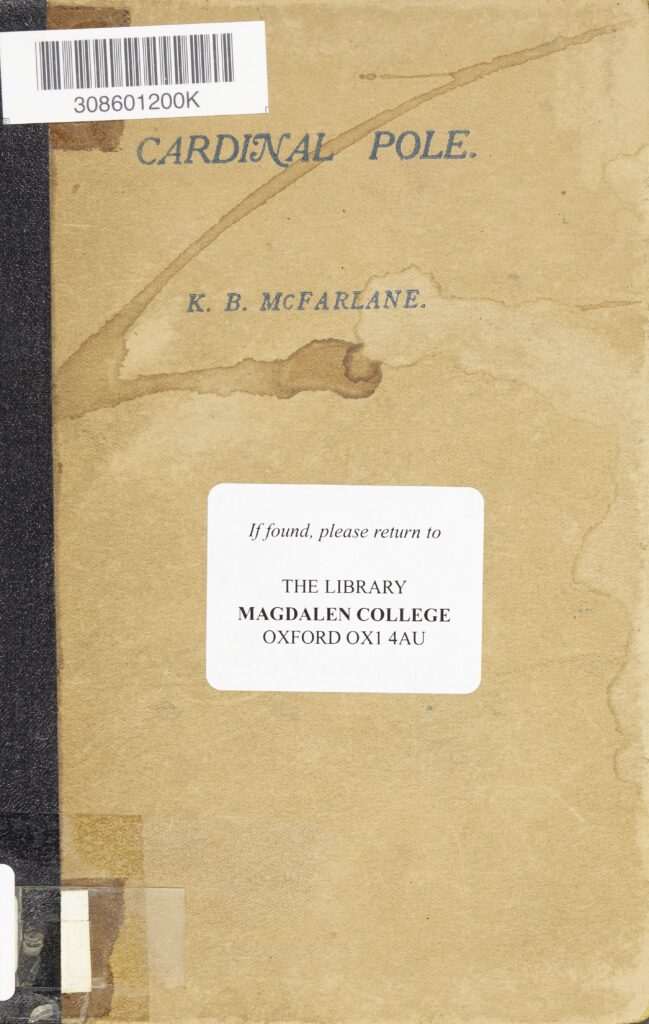
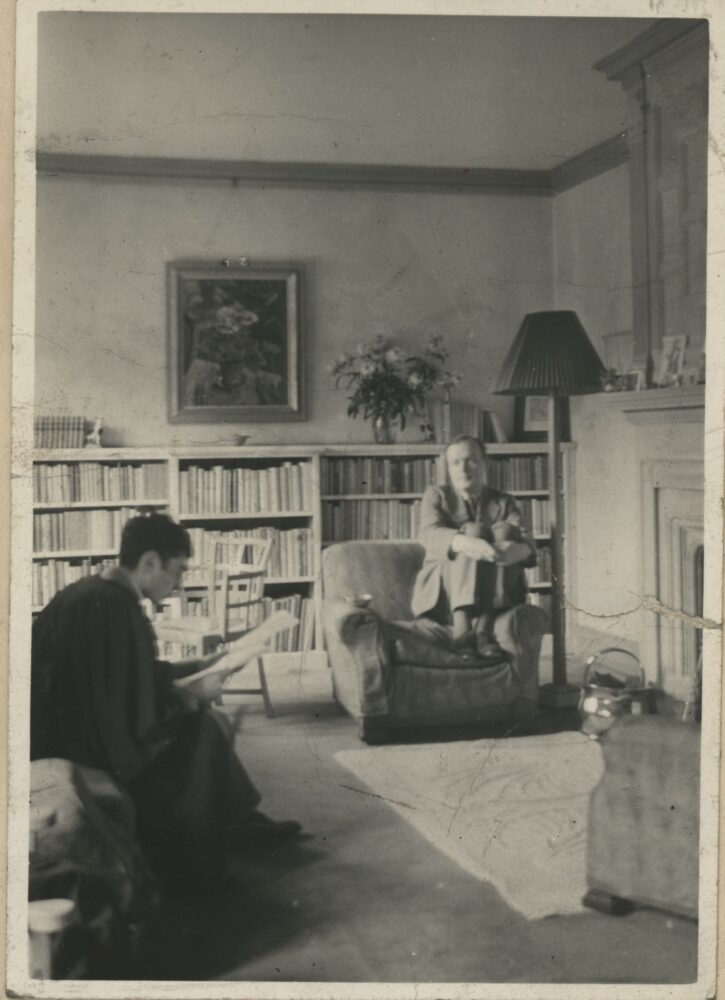

K.B. McFarlane’s school notebooks
McFarlane attended Dulwich School between 1917-1922. Here are two of his student notebooks from his school days. Even as a teenager, McFarlane was meticulous in his work. He took the time to number the pages, create contents pages, and he had excellent penmanship. On the last page, we can see evidence of handwriting practice or perhaps the testing of new ink.
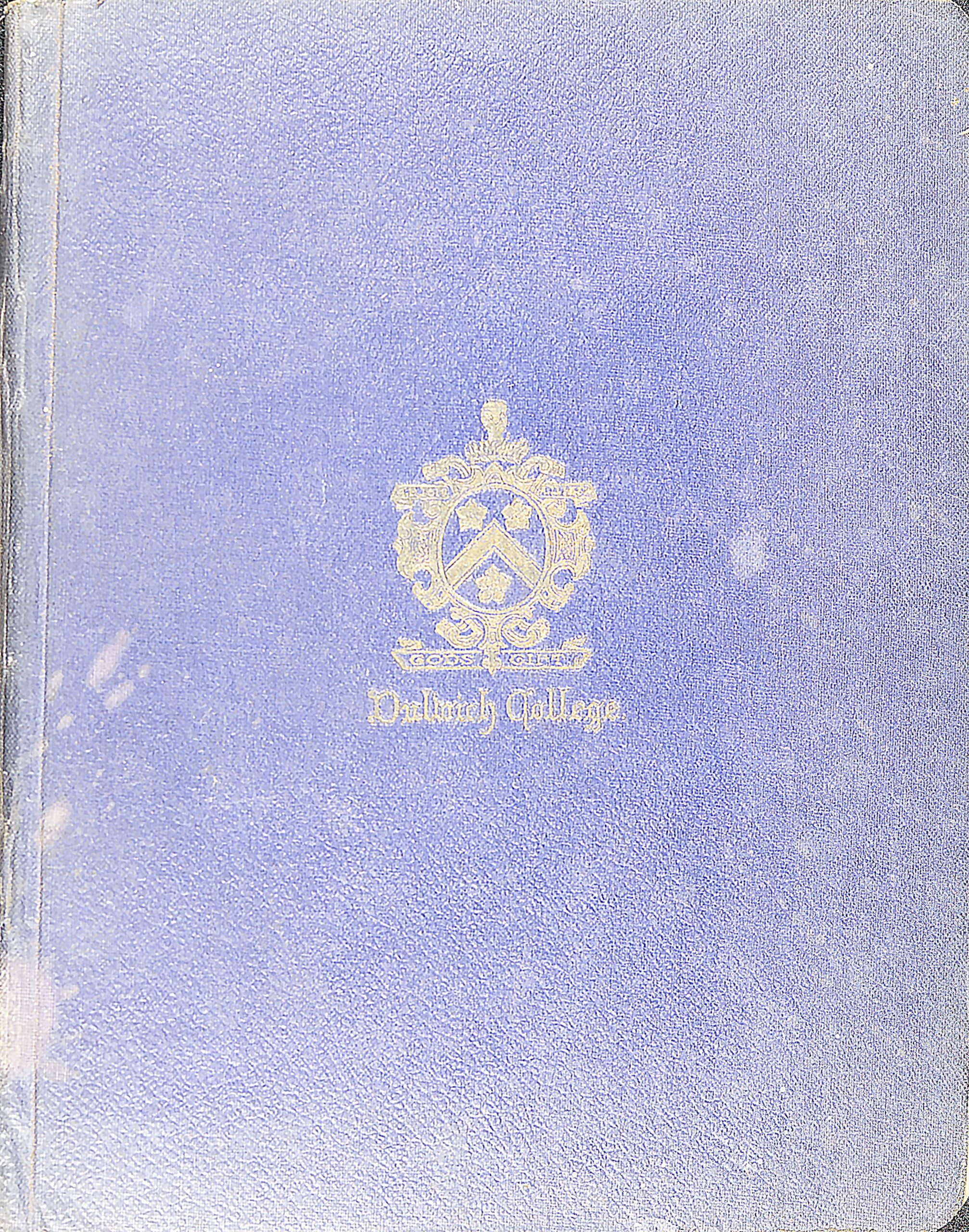
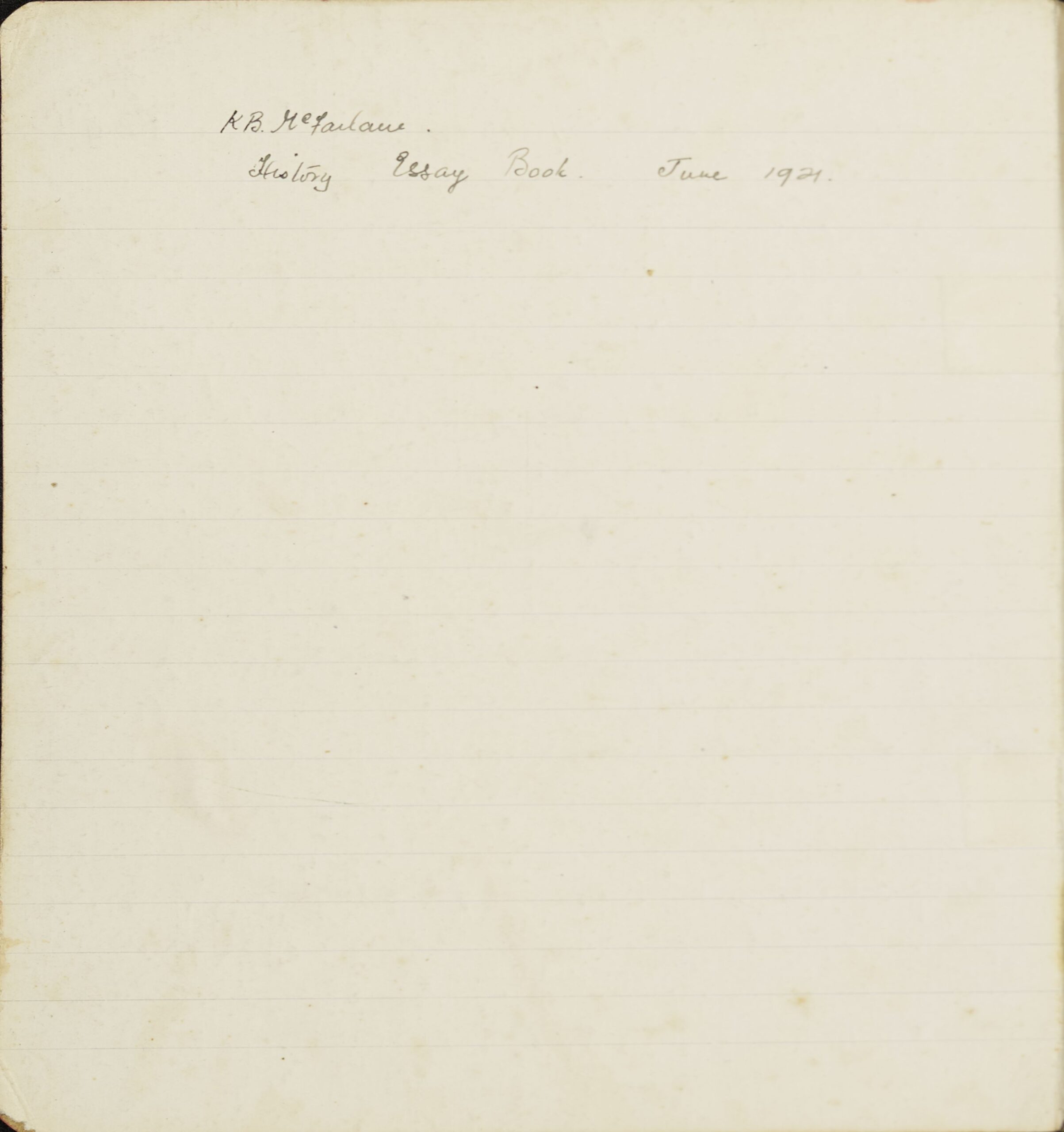
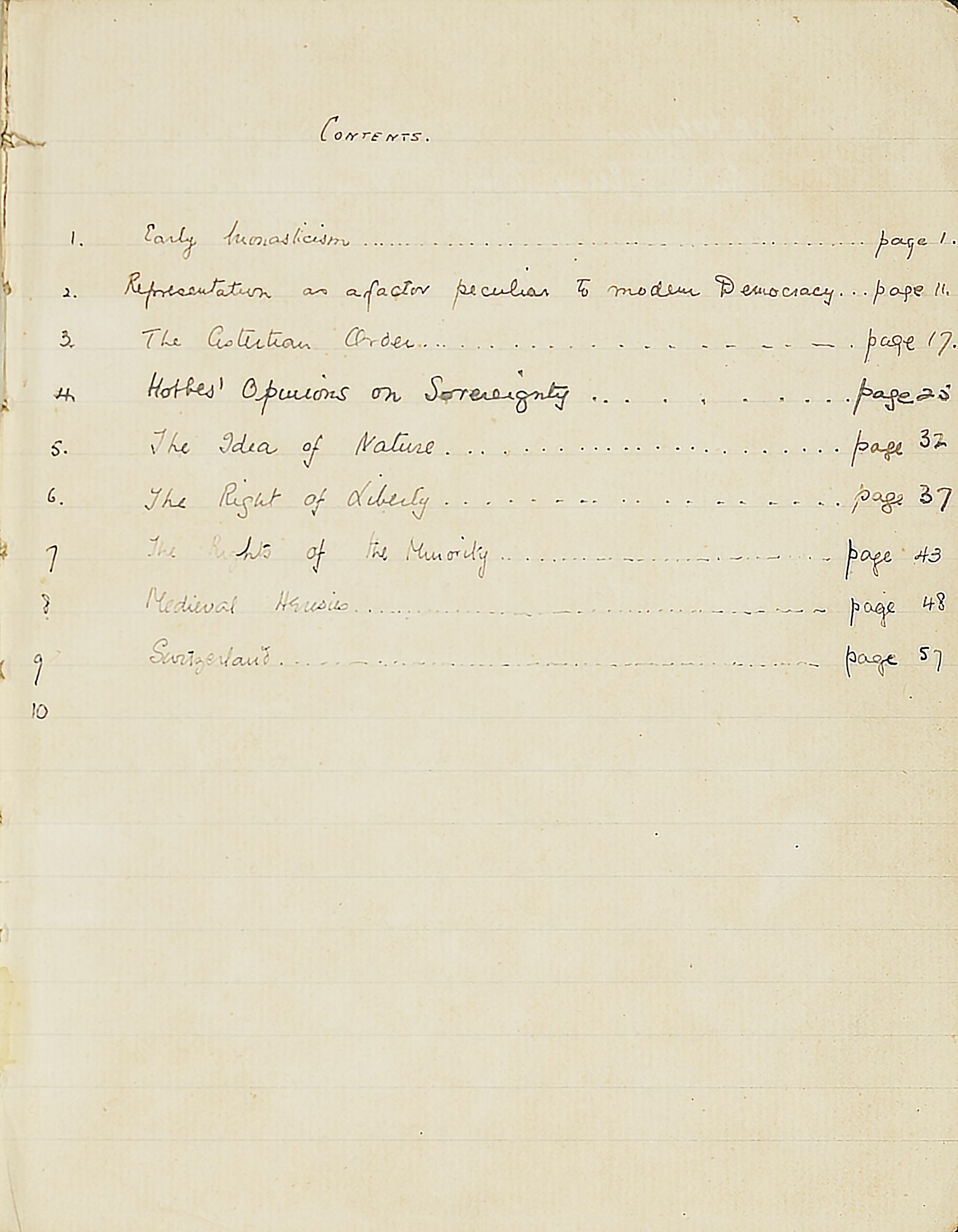
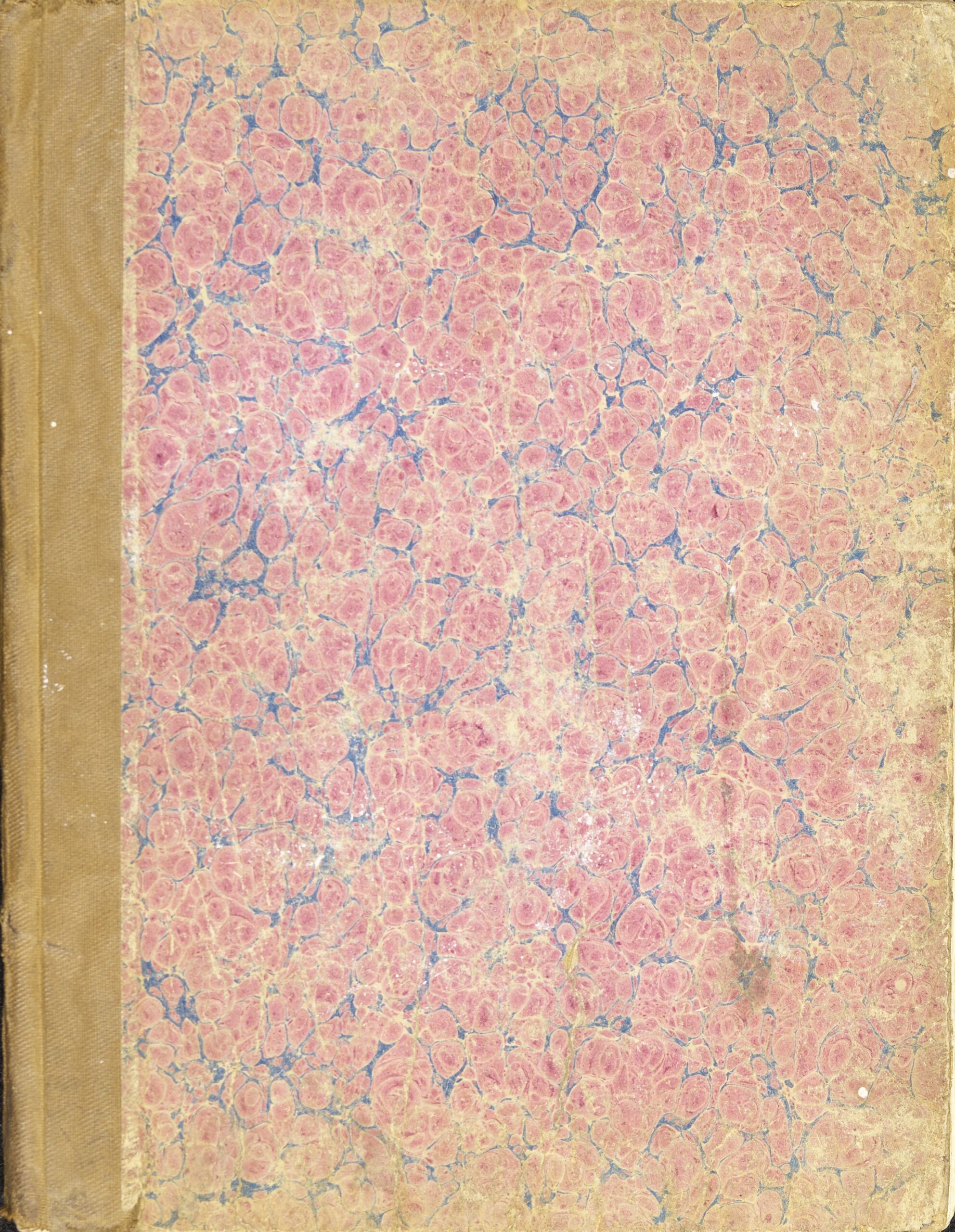
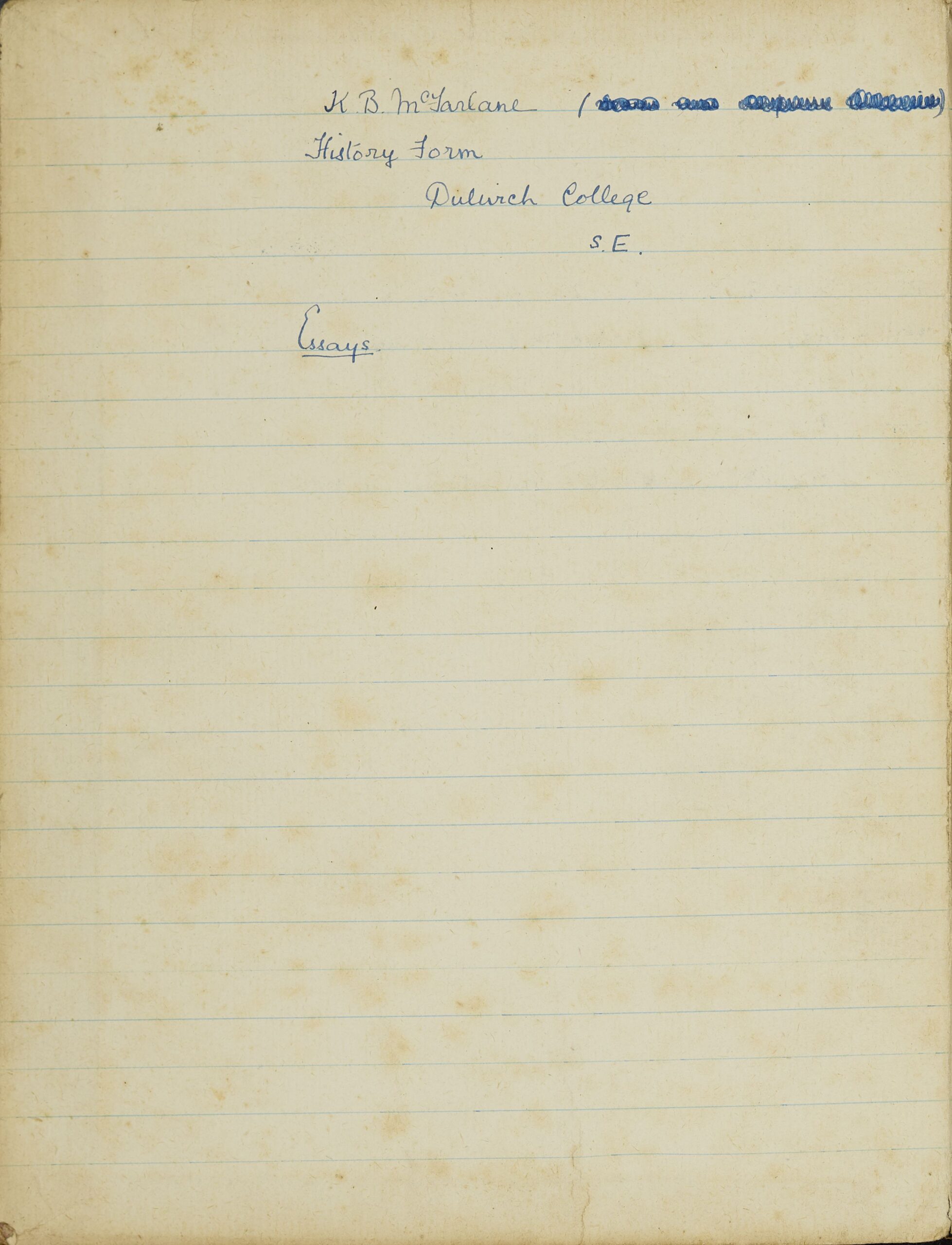
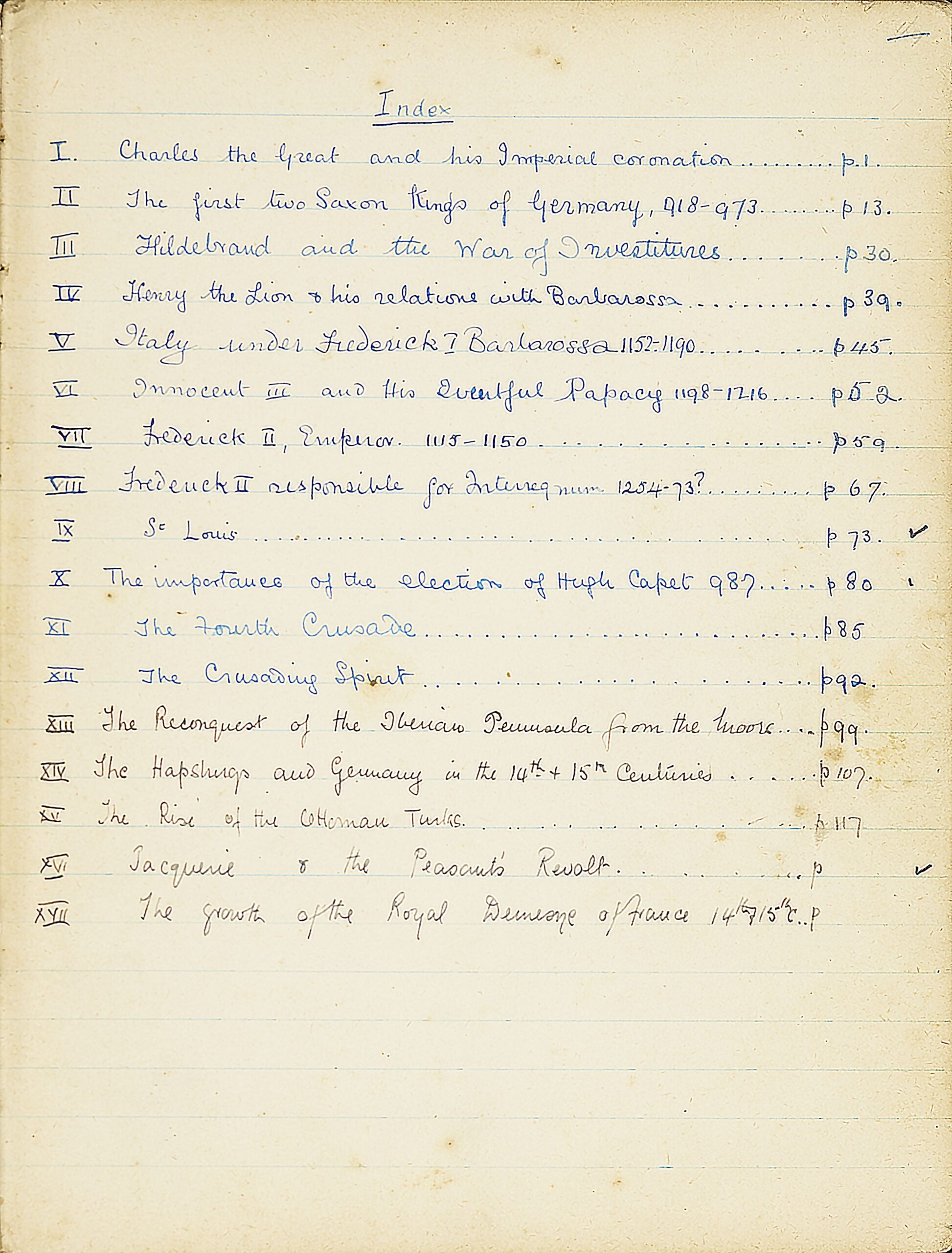
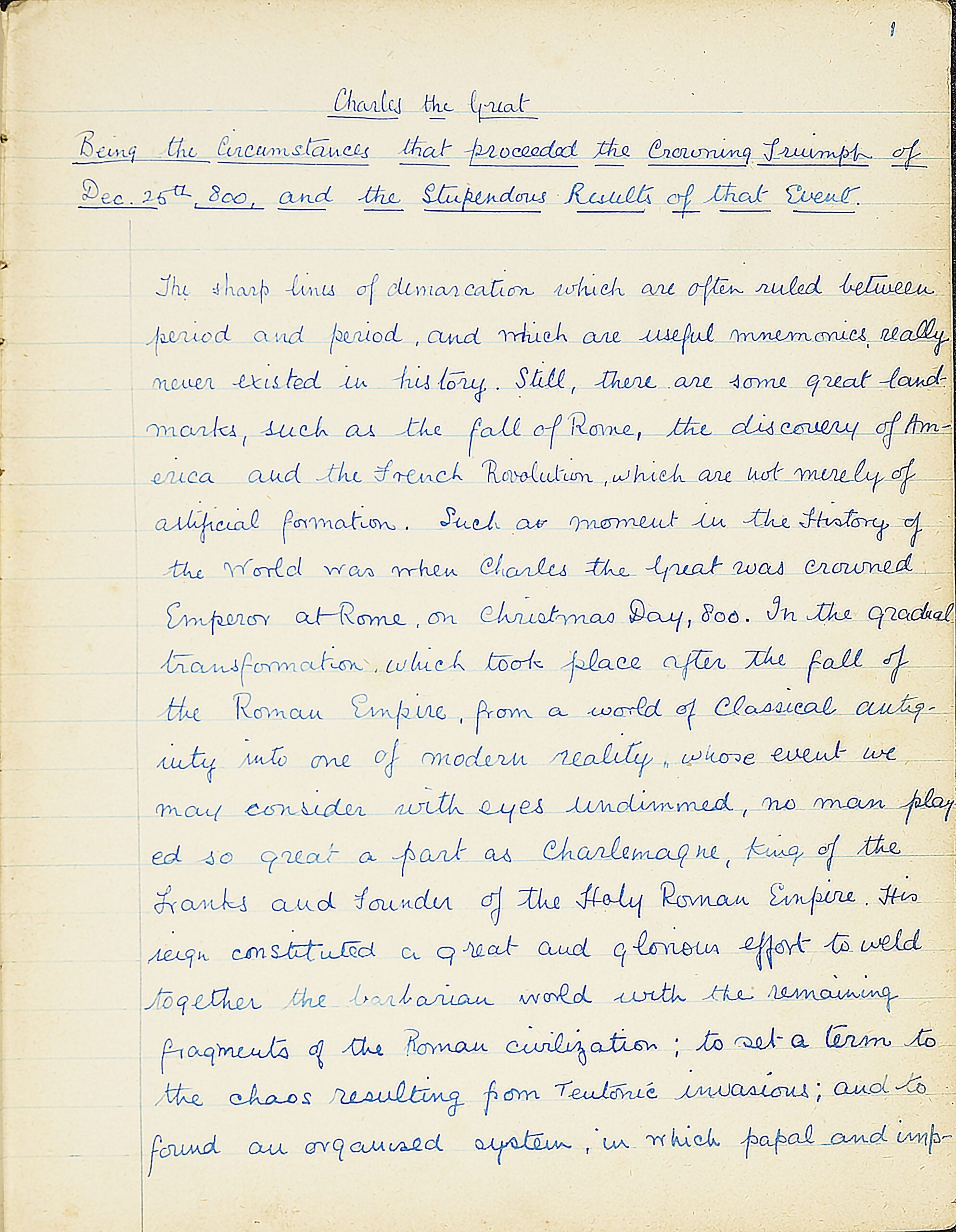
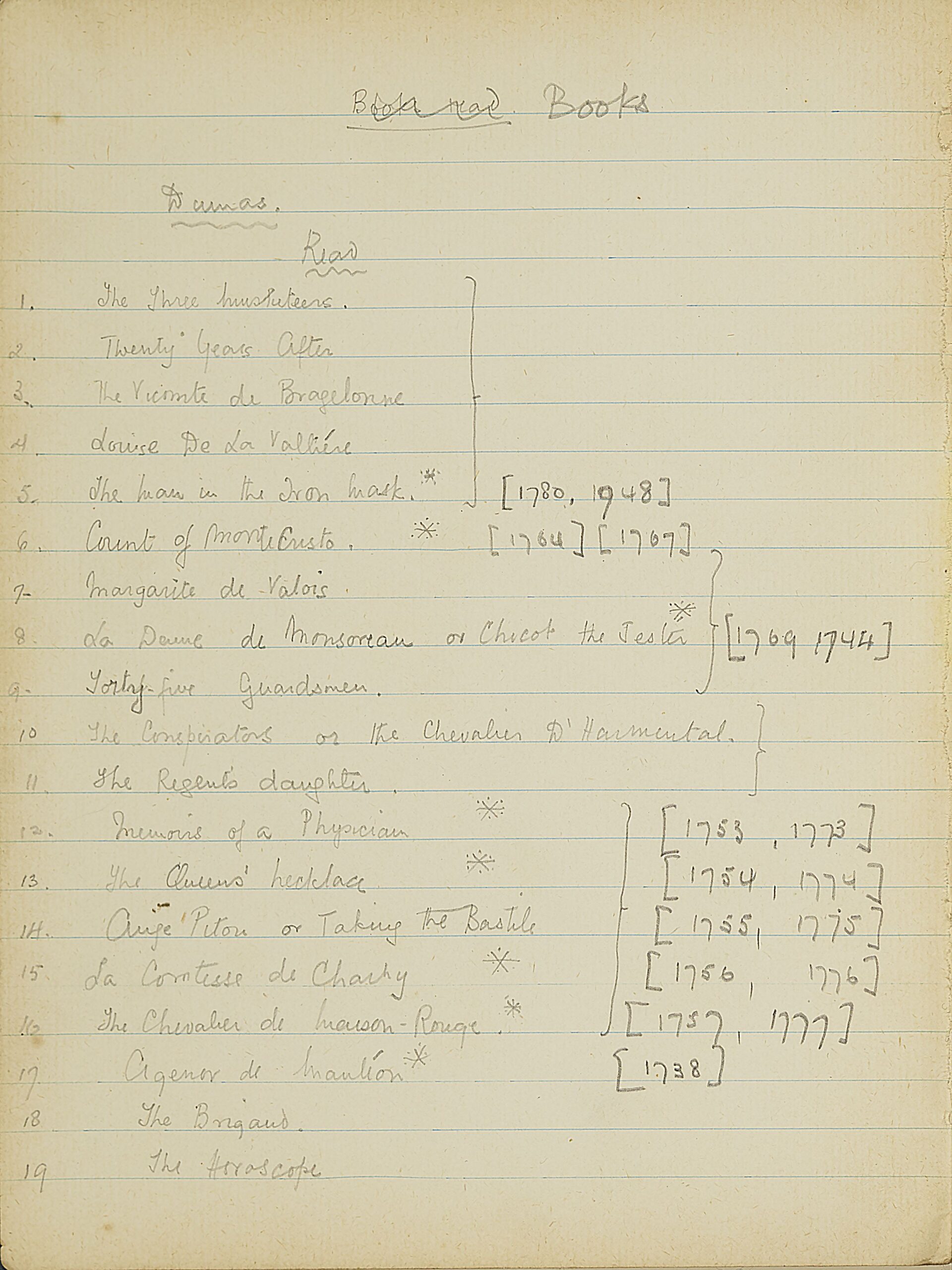
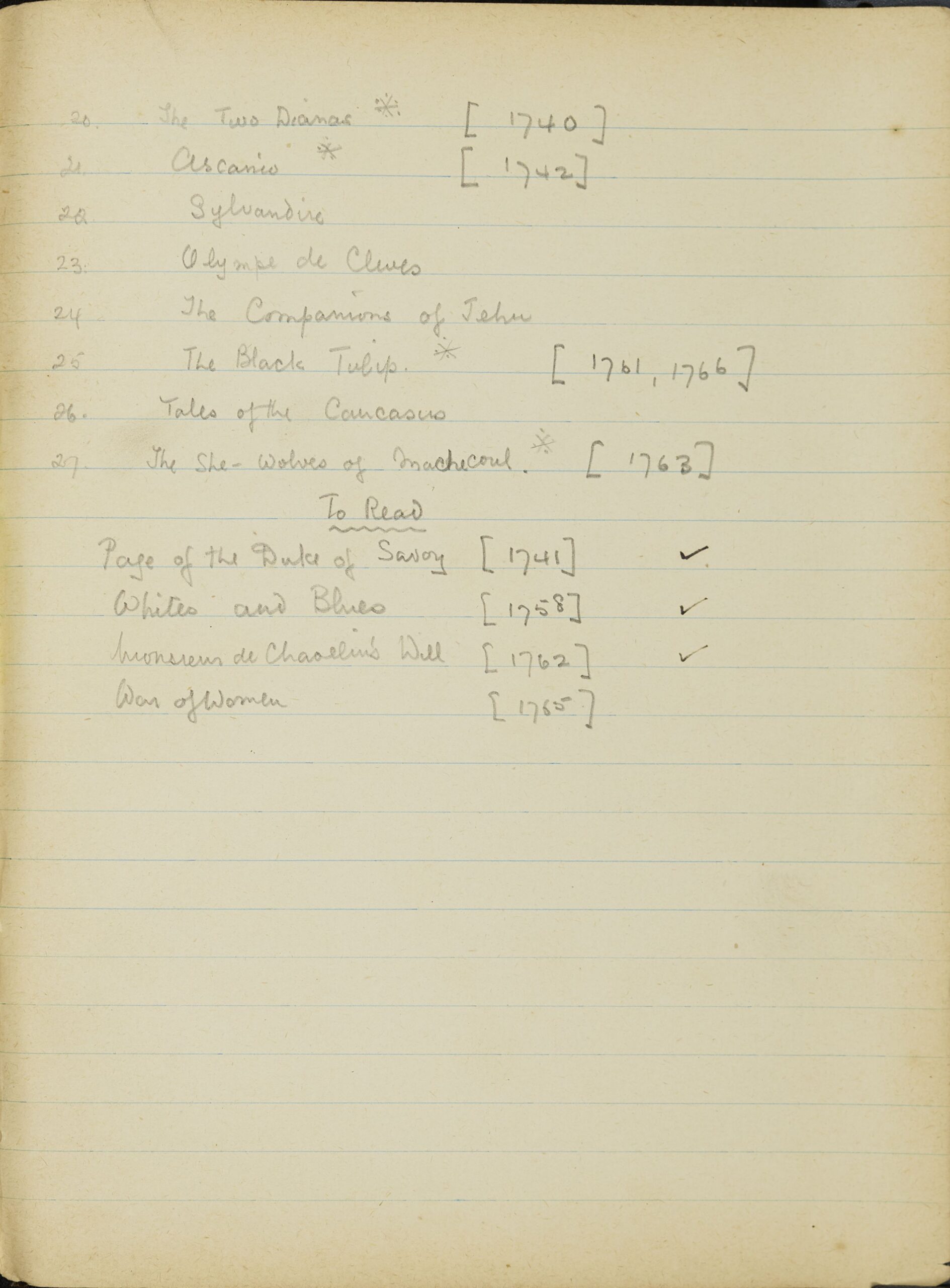
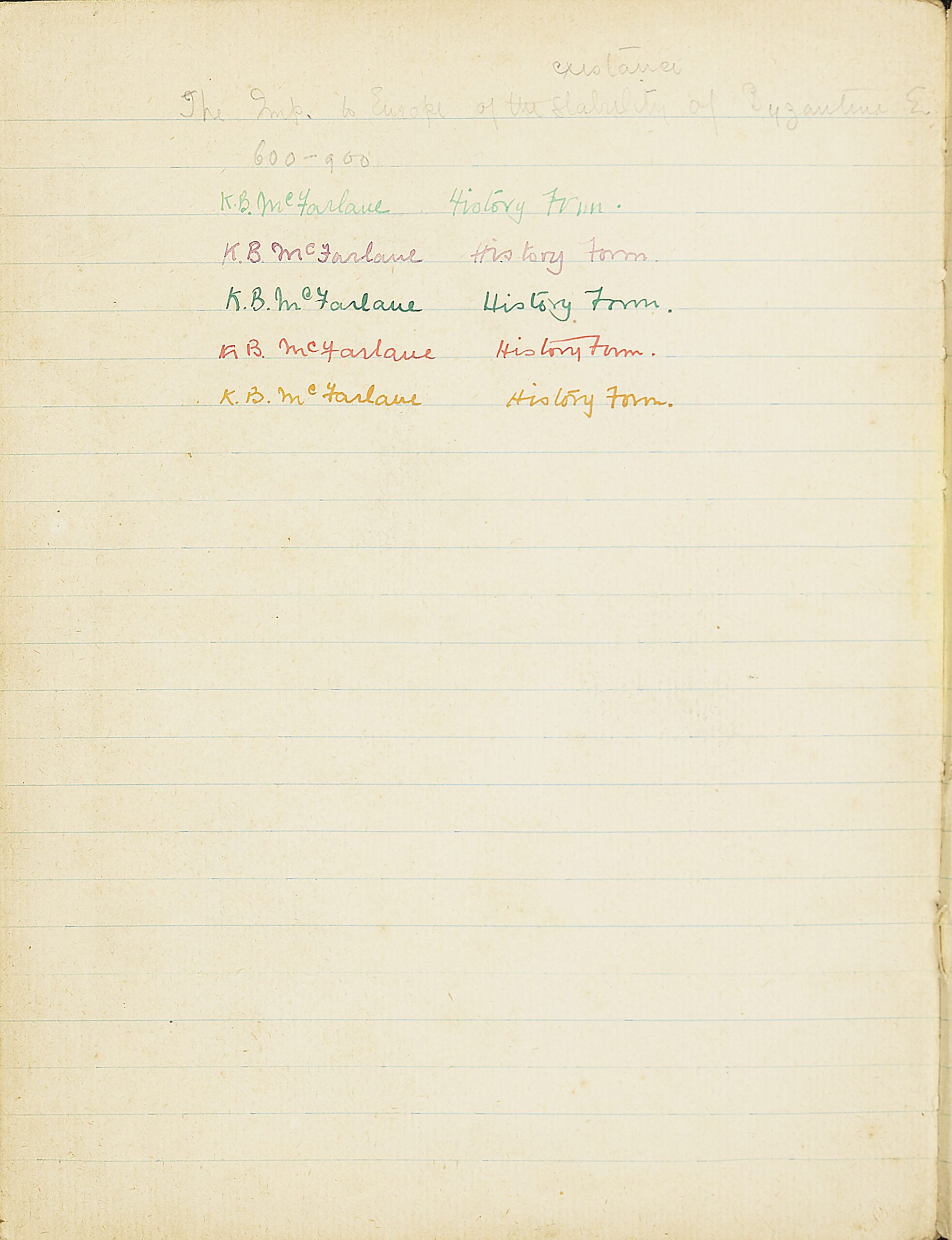


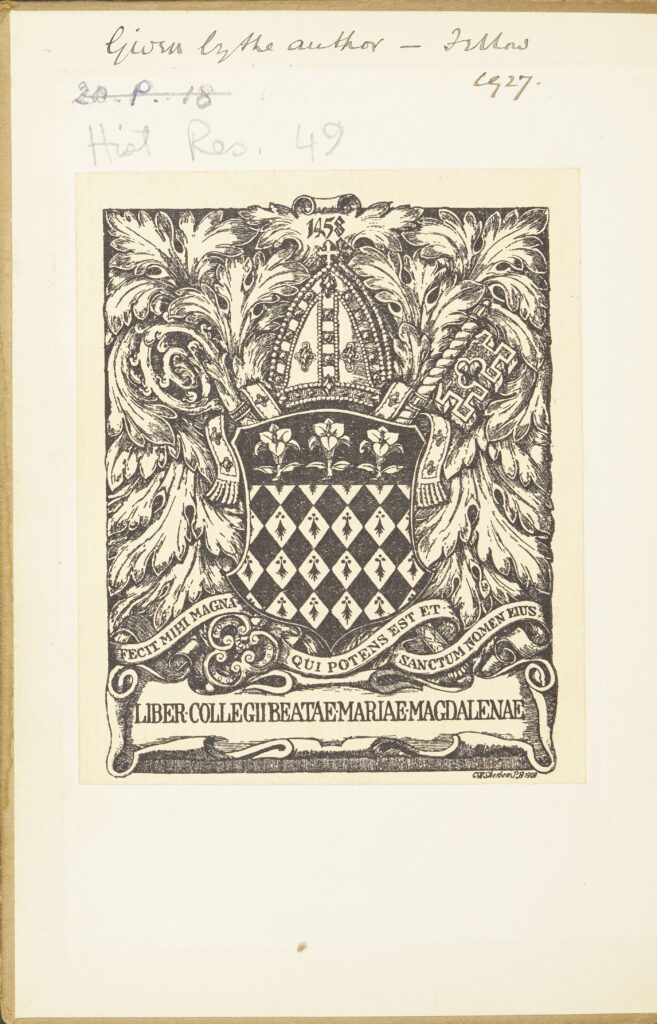
Cardinal Pole; the Stanhope Prize Essay by K.B. McFarlane
In 1924, McFarlane was awarded the Stanhope Prize for his essay on Cardinal Pole. This was a prestigious award given annually to a History undergraduate and McFarlane was in good company. Previous prizewinning essays were written by John Buchan (1897) and Aldous Huxley (1916). This copy of Cardinal Pole was gifted to the library by McFarlane after he became a Fellow here in 1927. McFarlane spent all his academic life in Oxford and A.J.P. Taylor’s descriptions of Oxford’s ‘inbred’ tutors could easily be applied to him.
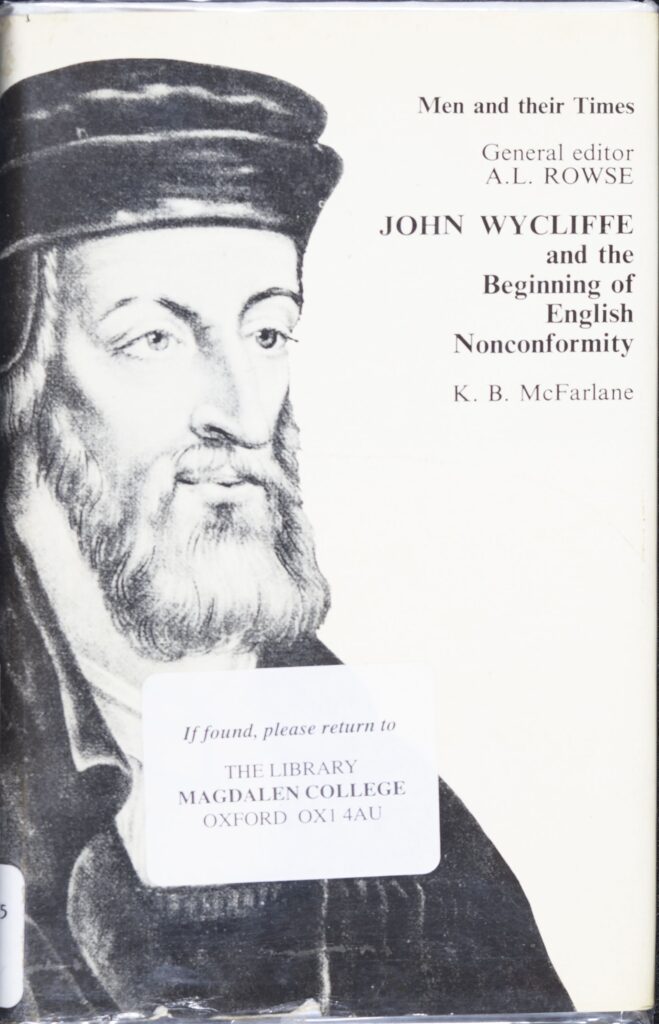

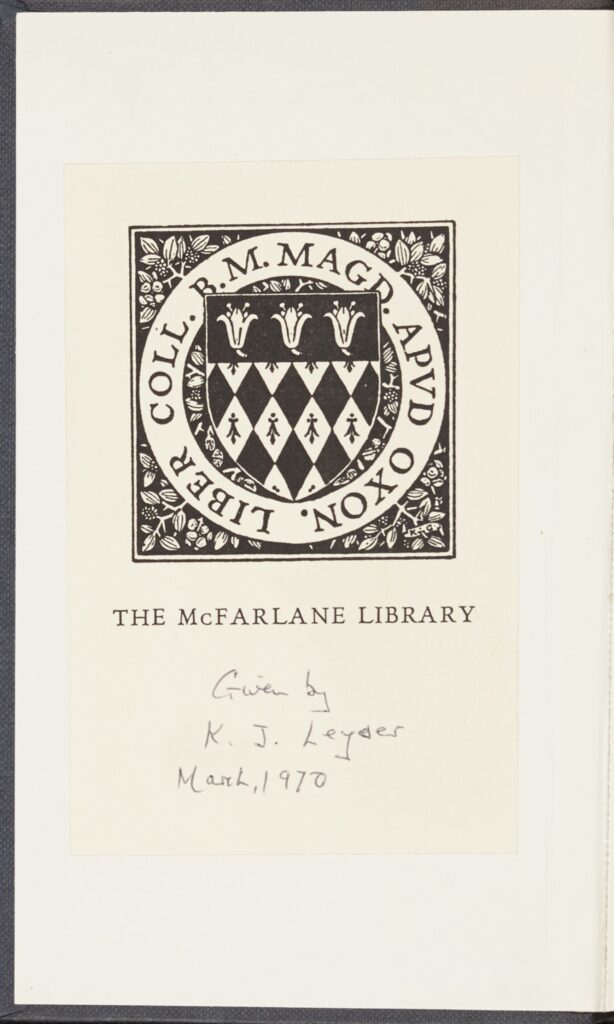
John Wycliffe and the Beginnings of English Nonconformity by K.B. McFarlane
This book is one of just a few books published during McFarlane’s lifetime. This copy is stored in our McFarlane Library, in the cloisters, which houses specialist works of medieval history which were owned by McFarlane and left to Magdalen following his death. It was given by Karl Leyser (featured in the tutorial photo used at the top of this page), in March 1970.
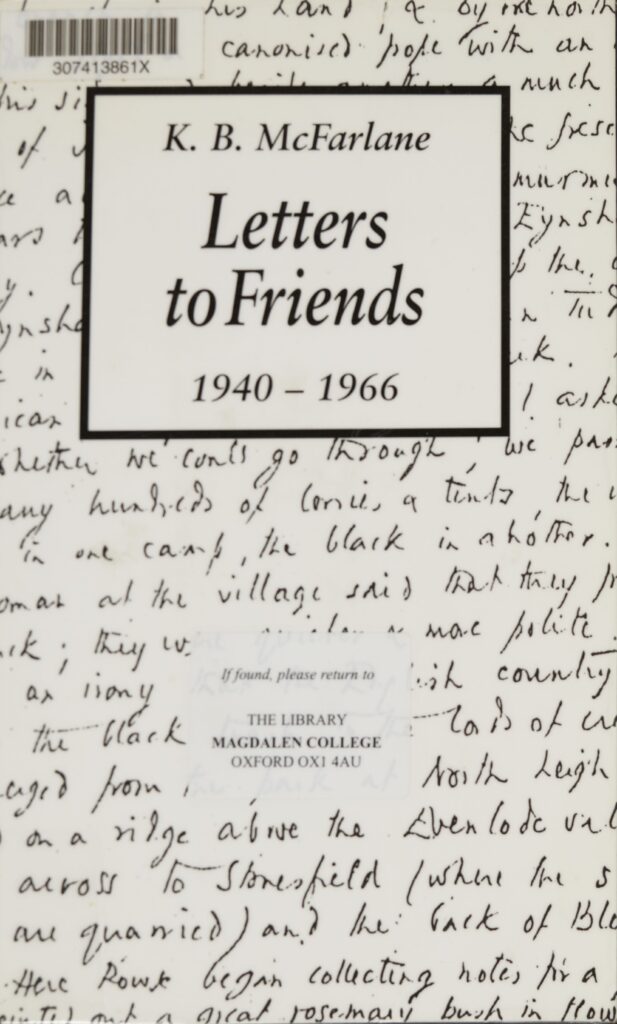

Letters to Friends: 1940-1966, by K. B. McFarlane, G. L Harriss, and Karl Leyser
McFarlane was a prolific letter writer and Magdalen College Archives holds hundreds of his letters. After he died, some of his correspondence was published as Letters to Friends: 1940-1966. None of his letters to Helena Wright feature in the book. It is unclear if this was due to the discretion of Wright’s family or an editorial decision. McFarlane was rather candid in his letters to Helena; perhaps his honest opinions (including his first impressions of A.J.P. Taylor) were deemed too honest to appear in print.
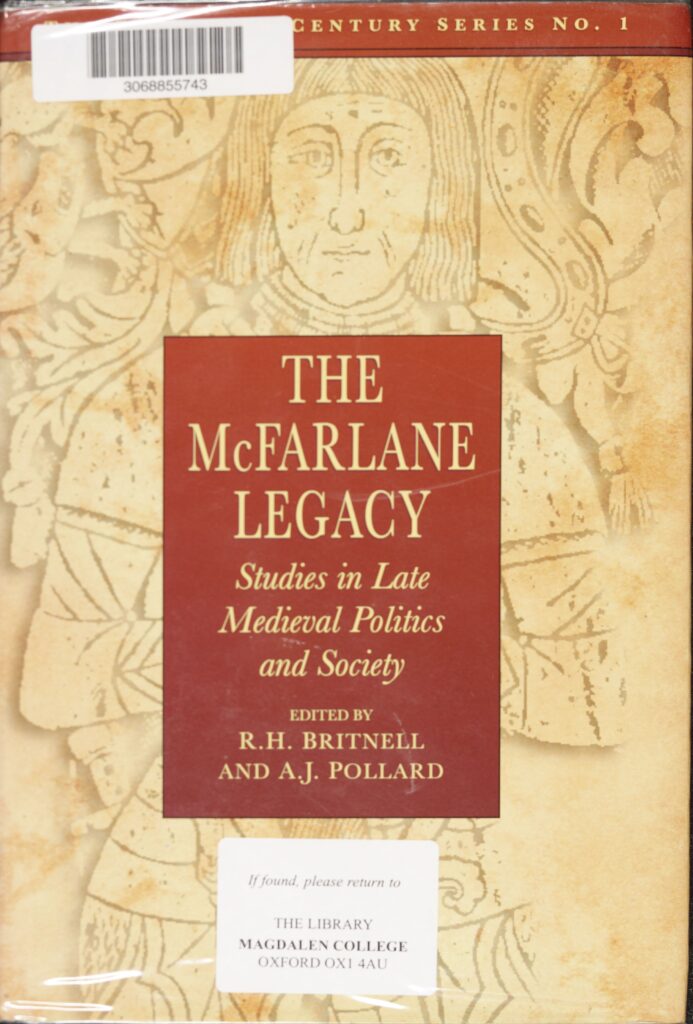

The McFarlane Legacy: Studies in Late Medieval Politics and Society, edited by R. H. Britnell and A. J Pollard
This book is a collection of essays on late medieval politics and society. That there was a book dedicated to McFarlane, published nearly fifty years after his death, shows the ongoing influence his work continues to have in shaping our understanding of the medieval world. One of the authors included in this book is G.L. Harriss. Harriss was taught by McFarlane before becoming a Tutorial Fellow in History at Magdalen himself. He was also the College Librarian from 1968-83.